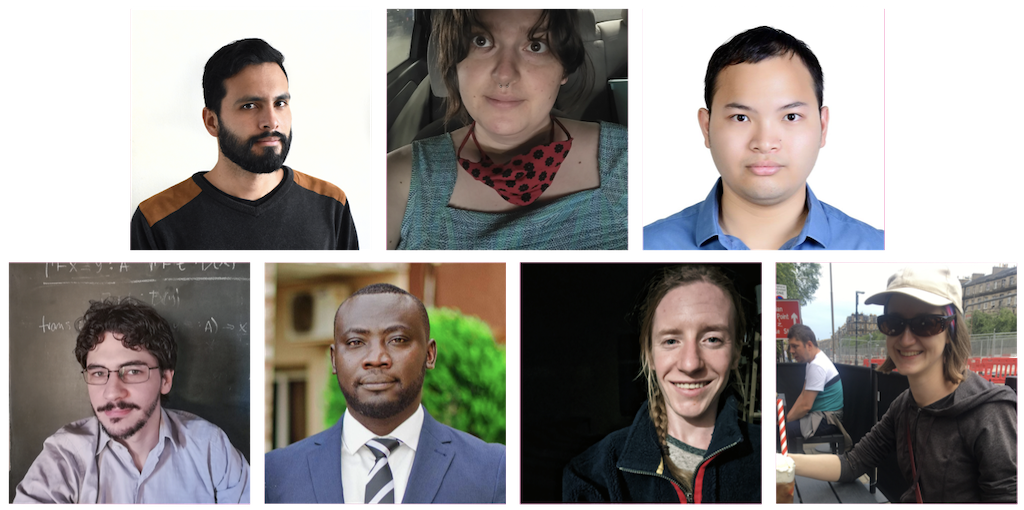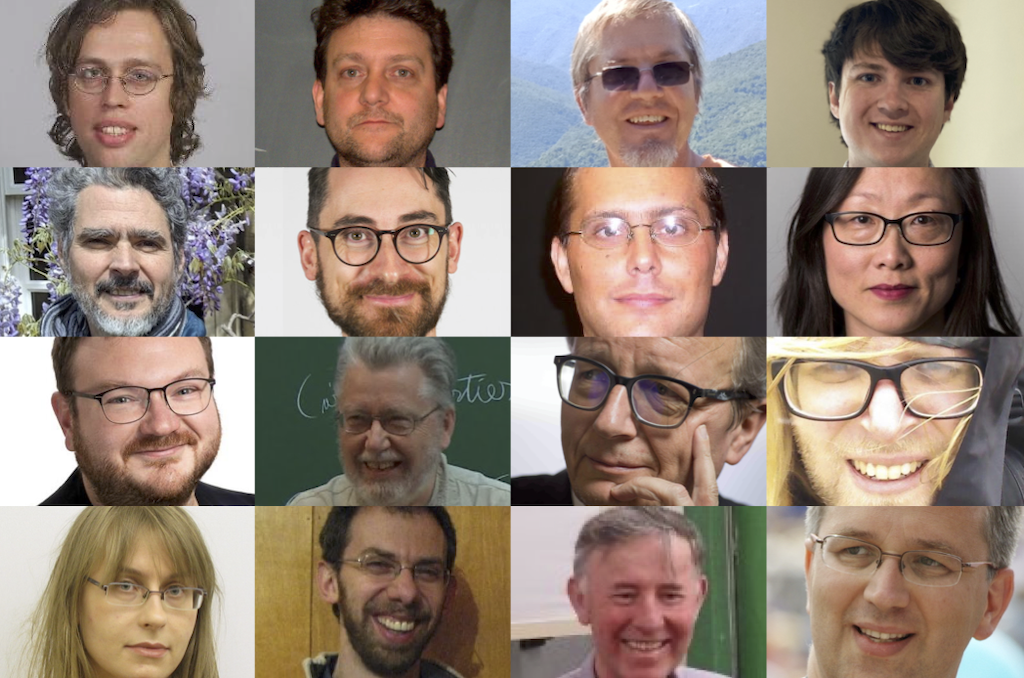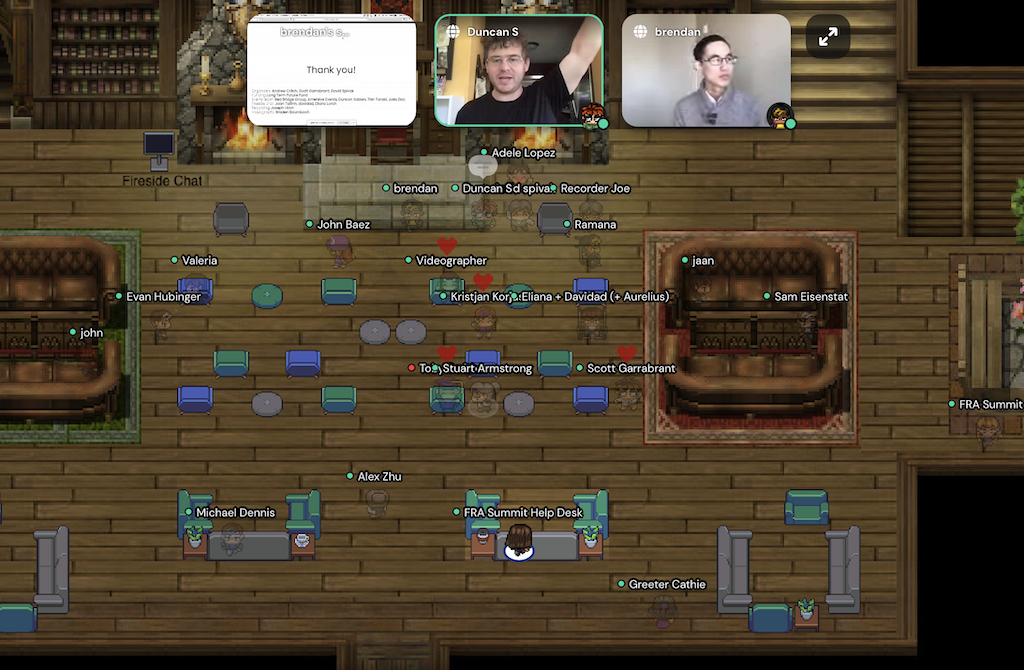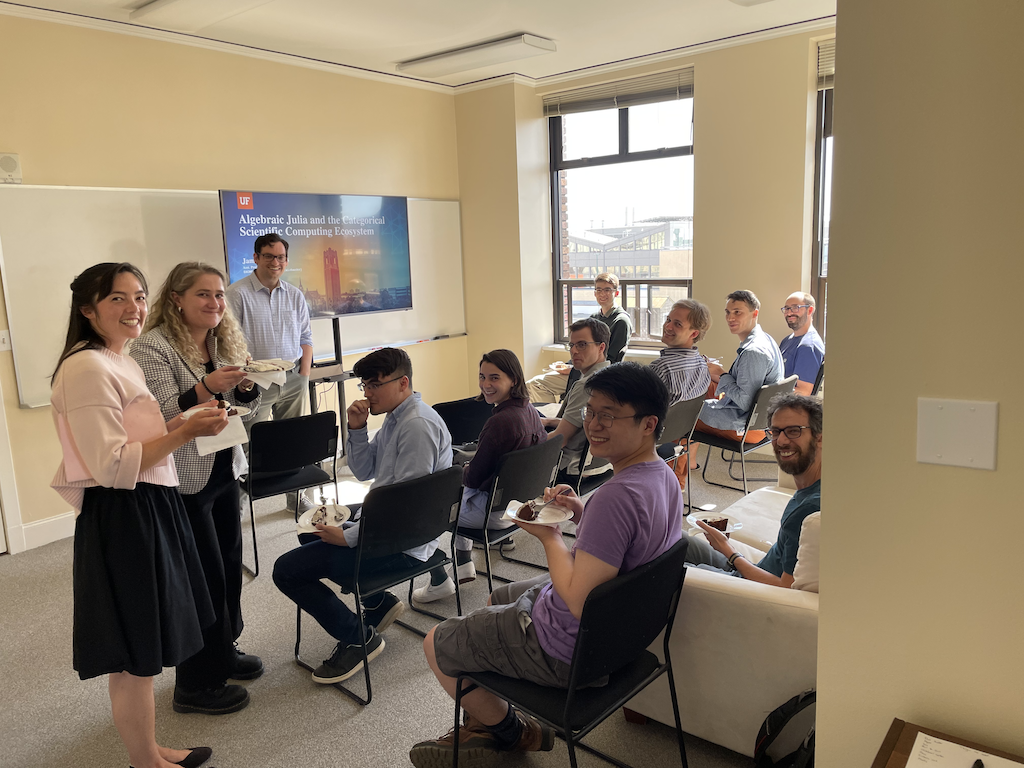Seminars and workshops so far
Although this blog has only just launched, the Topos Institute has been running quite a few public-facing events over the past five months or so, including a workshop and regular seminar series. With even more on the horizon, let’s take a look at what has been, and will be, going on.
The “official” start of the Topos Institute was January 2021, and, since then, our activities and interactions with the wider mathematical community have been gently gathering momentum. One purpose of this blog is as an outlet for mathematical musings, including survey articles on research that members of Topos have been following and working to better understand. But you will also see more “diary” type posts here, where we talk about things that have been happening at Topos, and this is the type of post that you are currently reading: I’d like to use this chance to briefly summarise the public-facing events that we’ve been working on this year.
1 The Colloquium
The most regular event is the Topos Institute Colloquium, which has been running (almost) every Thursday since the start of February, with 20 talks so far (all available on the YouTube playlist, with slides/abstracts on the colloquium webpage). The colloquium provides a space for leading experts working across mathematics to spend an hour talking about what they’ve discovered and what’s next, but also to ask questions of the audience, profiting from the fact that our community is so diverse in terms of mathematical backgrounds. I don’t want to single out any talk in particular, since they have all been of such high quality, but I will at least mention some of the topics that have been covered, in an attempt to showcase the variety: we have had talks on bits of type theory (both homotopical and traditional), dynamical systems, sheaf theory, model categories, the climate crisis, quantum contextuality, state machines, toposes1, probability theory, and so much more. The colloquium will continue to run up until the end of the calendar year, and then we will take a small pause, wrap up all the recordings and slides and abstracts into one archive, and start afresh in 2022.
2 Em-Cats
In progress, but still behind the scenes, is the Em-Cats seminar — a seminar series in which Eugenia Cheng is mentoring graduate category-theory students in how to give excellent talks (a subject in which Eugenia herself is clearly incredibly proficient). Although the talks have yet to start, student speakers have already been selected from a huge pool of applicants, with Jade Master kicking things off at the end of August. A full list of speakers can be found on the seminar webpage, alongside further information on the format and aims of the series. (This is something that I’m very excited to see underway!)

3 Workshop on Polynomial Functors
Switching over to things that have already happened, March saw the first Topos Institute workshop: the Workshop on Polynomial Functors. Over the course of a week, wonderfully organised by Joachim Kock and David Spivak, we saw 16 speakers talk about the most recent developments in the theory and applications of polynomial functors, touching upon things from \infty-categories to lenses, and from dependent or linear type theory to categorical logic. All of the recordings are available online, as are the slides — everything can be found on the workshop webpage.

4 FRA Summit
Another, more recent, workshop was the Finding the Right Abstractions summit. This represented a big step forwards in interdisciplinary research, with members of the applied category theory community and of the AI safety community coming together to start conversations on how intelligence, agency, and optimisation can be better grounded in new theories of abstractions, in such a way that humanity can flourish as a result. Due to the highly distinct theoretical backgrounds of the participants, many of the talks were intended to be largely expository and introductory, which means that they make for great viewing for a rather vast audience — you can watch them yourselves on YouTube.

5 Berkeley seminar
Finally, for now, the Berkeley seminar has just launched, which is more of an informal seminar, held in-person only at the Topos Institute Berkeley offices (which have just begun to open). Some of the talks will be available on YouTube, but the aim of this series is more to have a way to invite local speakers to share their ideas in a conversational way. If you’re around the area though (and have been fully Covid-19 vaccinated), then please do get in touch for details about how to attend — we look forward to seeing you!

I think that’s all for now, but there is always more to come (we have a few plans currently brewing), and we are feeling both optimistic and excited about all the talks, workshops, conversations, and collaborations that will most certainly take place over the coming years.
Footnotes
I cannot speak for the entirety of the Topos Institute here, but my stance on the “toposes vs. topoi” debate is to simply flip a coin each morning, and then stick to that outcome for the rest of the day.↩︎